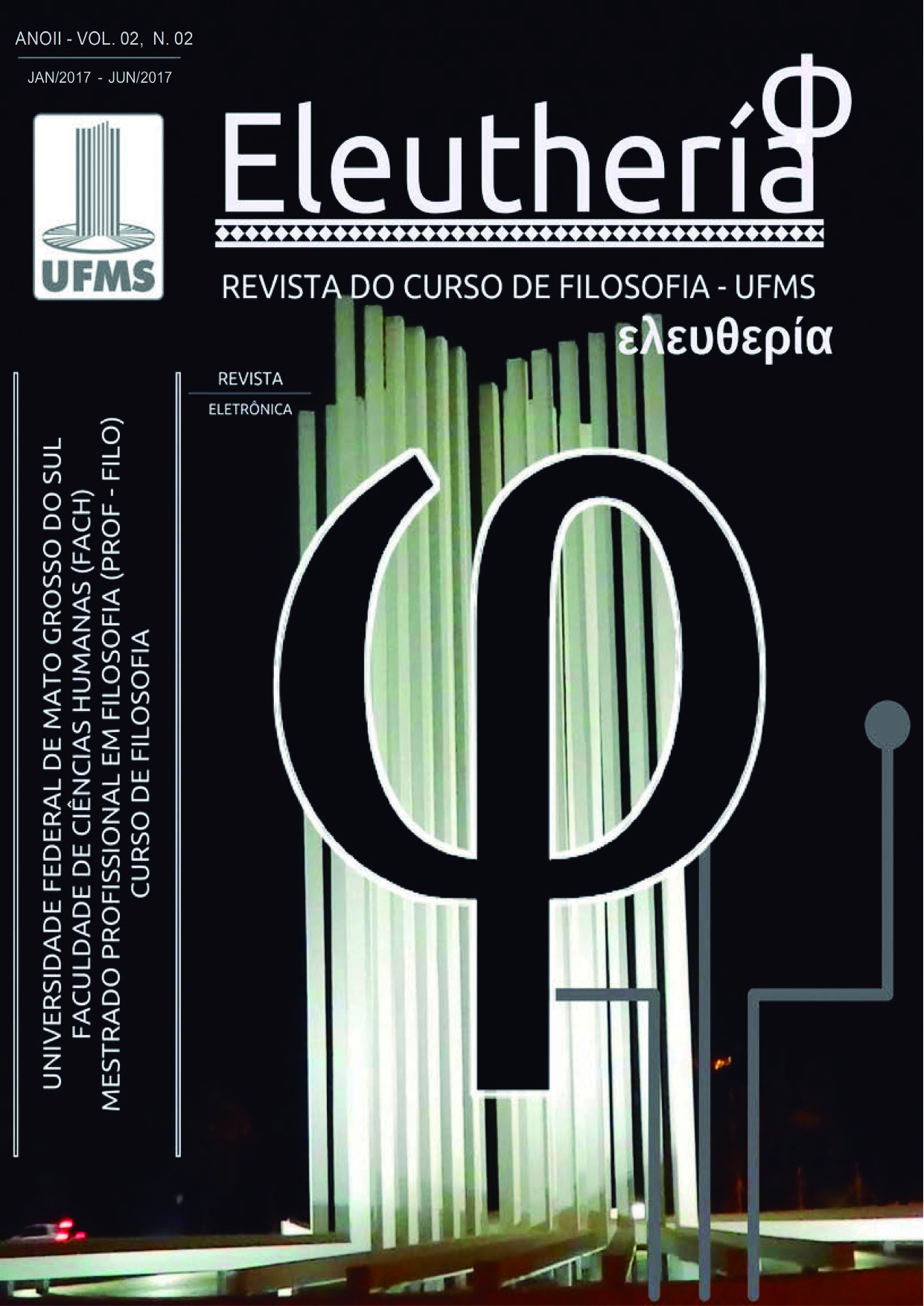O SÓCRATES DE O NASCIMENTO DA TRAGÉDIA
o início e a transmutação da cultura teórica
Resumo
Se o Zaratustra nietzschiano é a personagem que vai superar a metafísica e suas dualidades de opostos absolutos, especialmente a dualidade Bem-Mal, criada pelo Zaratustra histórico, o Sócrates musicante é a personagem que vai superar o pensamento racional e moral inaugurado pelo filósofo Sócrates, o Sócrates moribundo, decadente e condenado à morte pela polis. O objetivo deste artigo é investigar o desenvolvimento da personagem Sócrates de destruidor da cultura trágica grega e fundador da cultura teórica europeia a criador de uma nova sabedoria trágica. Trata-se também de entender como Nietzsche articula arte, conhecimento científico e filosofia em seu pensamento.
Downloads
Referências
BRANDÃO, Junito. Teatro grego: Tragédia e comédia. Petrópolis: Editora Vozes, 1999.
FREZZATTI Jr., Wilson Antonio. A Fisiologia de Nietzsche: a Superação da Dualidade Cultura/Biologia. Ijuí: Unijuí, 2006.
FREZZATTI Jr., Wilson Antonio. “O problema de Sócrates”: um exemplo da fisiopsicologia de Nietzsche. Revista de Filosofia Aurora, v. 20, n. 27, p. 303-320, 2008.
FREZZATTI Jr., Wilson Antonio. Nietzsche e la scienza: la fisiopsicologia come critica alla metafisica. In: BUSELLATO, Stefano (org.). Nietzsche dal Brasile: Contributi alla Ricerca contemporanea. Trad. G. Micheli, F. Nacci, S. Busellato. Pisa: ETS, 2014. p.185-200.
MARTON, Scarlett. Verbete “Dionisíaco”. In: GEN. Dicionário Nietzsche. São Paulo: GEN, Loyola, 2016. p. 188-190.
NIETZSCHE, Friedrich W. Sämtliche Werke. Kritische Studienausgab. G. Colli und M. Montinari (Hg). Berlin: Walter de Gruyter, 1999. 15 Bd.
PLATÃO. Fédon. Tradução: J. Paleikat e J. C. Costa. São Paulo: Abril Cultural, 1972. (Os Pensadores).
PLATON. Phédon. Trad. F. Thurot, avec le texte grec. Paris: L’Hachette, 1847.
Todos os trabalhos que forem aceitos para publicação, após o devido processo avaliativo, serão publicados sob uma licença Creative Commons, na modalidade Attribution-NonCommercial-NoDerivatives 4.0 International Public License (CC BY-NC-ND 4.0). Esta licença permite que qualquer pessoa copie e distribua a obra total e derivadas criadas a partir dela, desde que seja dado crédito (atribuição) ao autor / à autora / aos autores / às autoras.


